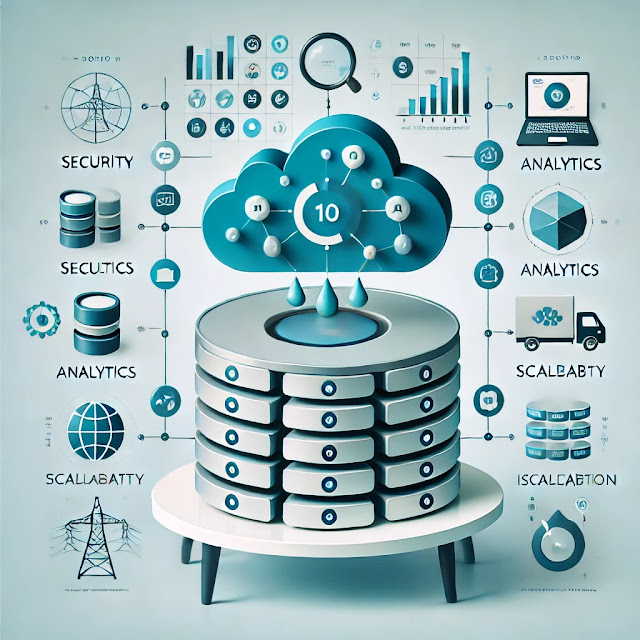Top 10 Features of Snowflake You Should Know
In today’s data-driven world, businesses require efficient, scalable, and secure cloud-based data warehousing solutions. Snowflake has emerged as a leading cloud data platform, providing unique features that set it apart from traditional databases. Here are the top 10 features of Snowflake that you should know.
1. Cloud-Native Architecture
Snowflake is a fully managed cloud-based data warehouse designed to operate seamlessly on multiple cloud platforms like AWS, Azure, and Google Cloud. This architecture eliminates the need for infrastructure management, enabling businesses to focus on data processing and analytics.
2. Separation of Storage and Compute
One of Snowflake’s standout features is the separation of storage and compute. Unlike traditional databases, where storage and computing resources are tightly coupled, Snowflake allows businesses to scale each component independently. This results in better cost optimization and improved performance.
3. Automatic Scaling
Snowflake provides automatic scaling capabilities, allowing workloads to adjust dynamically based on demand. This ensures optimal performance, even during high-traffic periods, without manual intervention.
4. Zero-Copy Cloning
With zero-copy cloning, users can create instant copies of databases, schemas, and tables without duplicating data. This feature is useful for testing, development, and analytics, reducing storage costs while maintaining data integrity.
5. Time Travel and Data Recovery
Snowflake’s Time Travel feature enables users to access historical data and recover deleted records within a defined retention period . This is particularly useful for auditing, compliance, and accidental data loss recovery.
6. Data Sharing and Collaboration
Snowflake makes data sharing seamless with its Secure Data Sharing feature. Organizations can securely share live, real-time data across departments or with external partners without moving or copying the data, ensuring consistency and security.
7. Multi-Cluster Warehouses
To handle concurrent workloads efficiently, Snowflake supports multi-cluster warehouses. This allows multiple users or applications to run queries simultaneously without performance degradation, making it ideal for large enterprises.
8. Comprehensive Security & Compliance
Security is a top priority for Snowflake. The platform includes end-to-end encryption, multi-factor authentication, and compliance with industry standards such as HIPAA, SOC 2, and GDPR, ensuring data security and regulatory adherence.
9. Support for Semi-Structured Data
Snowflake natively supports semi-structured data formats like JSON, Avro, Parquet, and XML. Unlike traditional databases that require complex transformations, Snowflake enables direct querying of semi-structured data using SQL.
10. Integration with BI & ETL Tools
Snowflake integrates seamlessly with popular BI and ETL tools like Tableau, Power BI, Informatica, and Apache Spark. This makes it easier for businesses to perform data analytics and streamline data processing workflows.
Conclusion
Snowflake’s innovative features make it a powerful and flexible cloud data platform for businesses of all sizes. From its cloud-native architecture to advanced security and seamless data sharing, Snowflake is revolutionizing the way organizations manage and analyze their data.
If you’re looking to master Snowflake, explore our Snowflake Training Courses at AccentFuture and take your data skills to the next level!
snowflake training , snowflake online training , snowflake course , learn snowflake , snowflake learning , snowflake data engineering certification , snowflake train
🚀Enroll Now: https://www.accentfuture.com/enquiry-form/
📞Call Us: +91-9640001789
📧Email Us: contact@accentfuture.com
🌍Visit Us: AccentFuture



Comments
Post a Comment